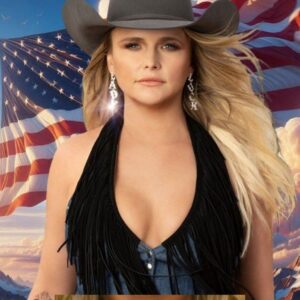
No one expected history to repeat itself that night in 2008, but when Paul McCartney suddenly walked onto Billy Joel’s Shea Stadium stage, the crowd erupted. Together they sang “Let It Be,” turning a farewell concert into a spiritual goodbye for the legendary arena. Tears flowed as 60,000 voices joined the chorus, echoing words of wisdom into the summer sky. For a moment, time folded — 1965 met 2008, The Beatles met the Piano Man. And in that collision, Shea’s final bow became one of music’s greatest miracles.
Billy Joel & Paul McCartney Bring Shea Stadium to Tears with a Historic “Let It Be”

It was a night already etched in the history books. July 2008 marked the final concert at New York’s legendary Shea Stadium, home to both baseball triumphs and musical milestones. Billy Joel, the “Piano Man” himself, had been given the honor of closing the venue with his two-night farewell concerts. Fans knew it would be special. What they didn’t know was that it would end with one of the most iconic moments in live music history — the moment Paul McCartney walked on stage.
The Surprise Entrance

As Billy Joel reached the latter part of his setlist on July 18, he began speaking about the stadium’s legacy. Shea wasn’t just the Mets’ home; it was the site where The Beatles played their groundbreaking 1965 concert — the show that changed the face of rock music. Then, almost as if history were repeating itself, Joel introduced a surprise guest: “Ladies and gentlemen… Sir Paul McCartney!”
The stadium erupted. Nearly 60,000 fans roared as the former Beatle appeared, walking onto the stage with his signature Hofner bass. For many in the audience, it was as if two New York musical worlds had collided — Billy Joel, the city’s adopted son, and Paul McCartney, the Liverpool legend whose band once made Shea the epicenter of Beatlemania.
A Song of Hope and Healing

Together, they launched into “I Saw Her Standing There,” igniting the crowd with a rush of nostalgia and rock-and-roll fire. But the moment that followed was something deeper, something transcendent. Joel sat at the piano, McCartney took the microphone, and the unmistakable opening chords of “Let It Be” filled the air.
The choice was poignant. “Let It Be” had always carried a spiritual weight — a song written during turbulent times, inspired by McCartney’s late mother, that became an anthem of comfort and perseverance. At Shea, with its walls set to be demolished and decades of memories lingering in the air, the song became more than a performance. It was a farewell, a blessing, and a passing of the torch.
The Crowd’s Reaction
As McCartney’s voice soared — still rich with emotion after all these years — the entire stadium sang along. Thousands of fans, arms swaying, tears streaming, lifted their voices in unison: “Whisper words of wisdom, let it be…”
One fan later described it as “the closest thing to a religious experience I’ve ever had at a concert.” Another wrote: “It felt like history folding in on itself — the Beatles’ Shea Stadium concert in 1965 reborn in 2008, but this time, it was goodbye.”
Joel, usually the master of the spotlight, happily ceded the stage to McCartney, playing piano accompaniment with reverence. The sight of the two icons together — one at the twilight of Shea Stadium, the other forever tied to its origin story — left fans breathless.
A Farewell for the Ages
When the final notes rang out, the audience exploded into applause that seemed to shake the very foundations of the stadium. It wasn’t just a celebration of two legends; it was a collective goodbye to a place that had defined an era of music and sport. Shea would be gone within months, but this moment ensured its final bow was nothing short of unforgettable.
A Legacy Cemented
The Shea Stadium finale went down as one of the greatest live performances in modern memory, precisely because it wasn’t just about music — it was about memory, legacy, and the way songs can carry people through time. Billy Joel gave New York its closing anthem, but Paul McCartney gave the world its soul with “Let It Be.”
For fans who were there, it wasn’t just a concert. It was history. It was goodbye. And above all, it was a reminder that in the face of endings, music always has the last word.





